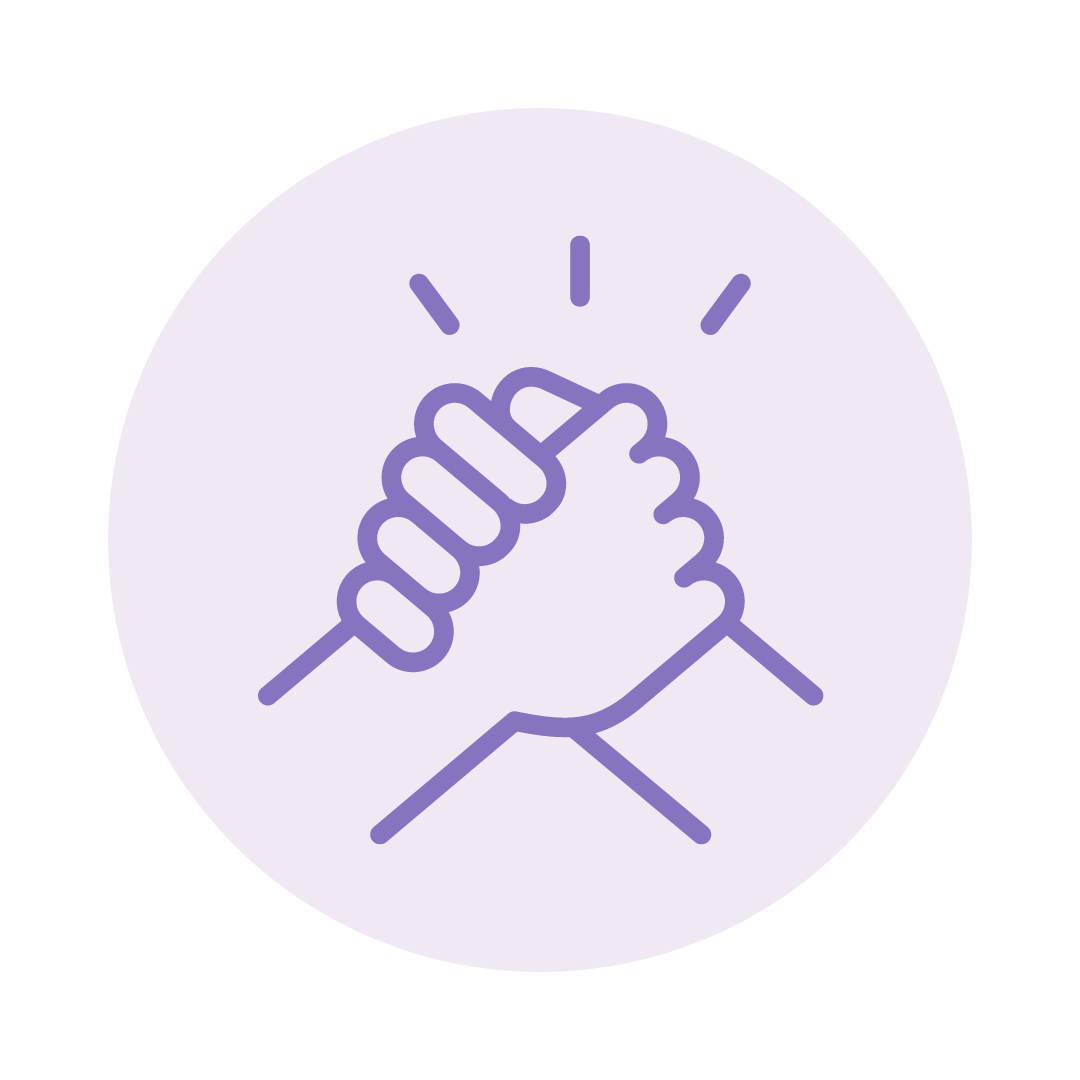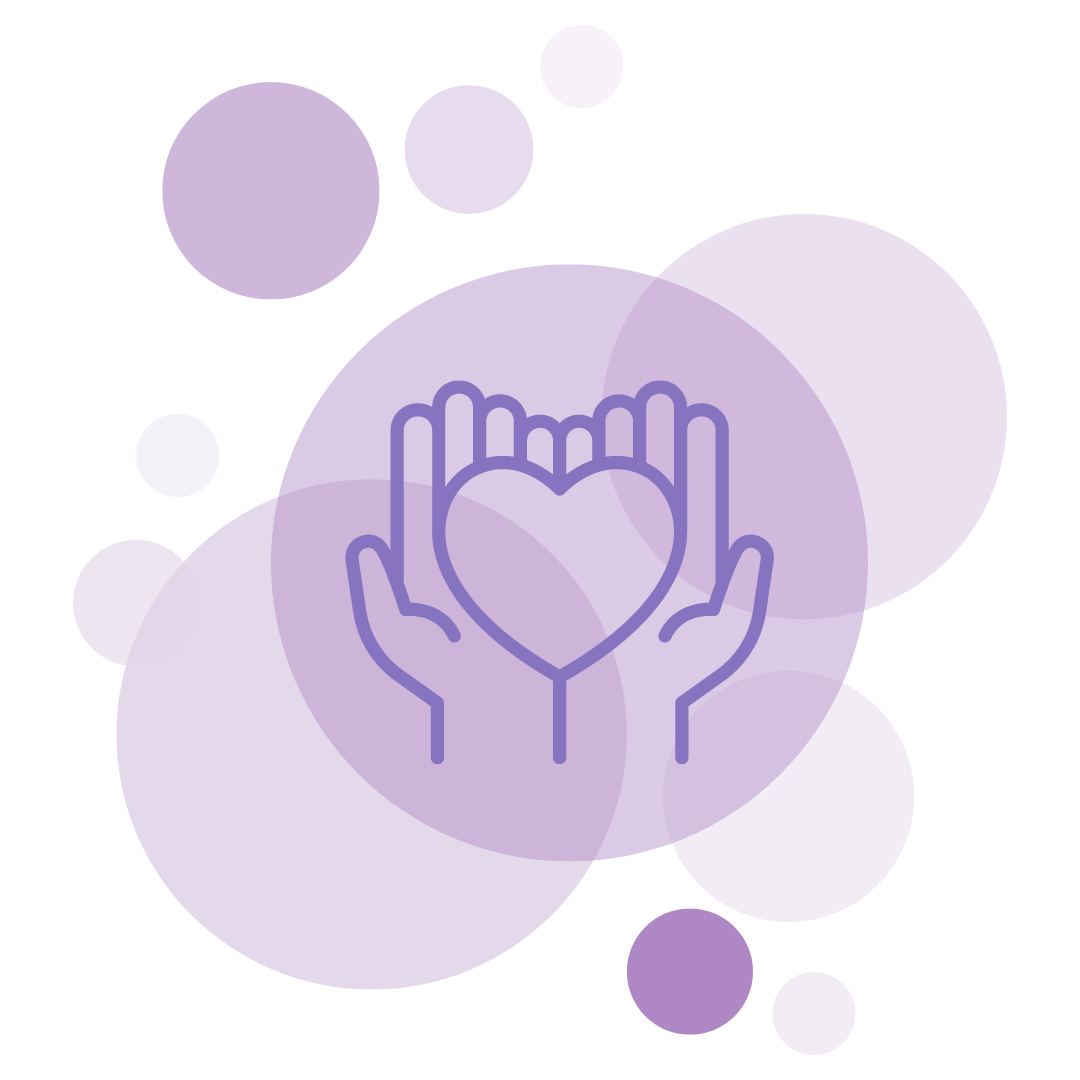DBT Skills Group
Join us online to learn DBT skills to manage intense emotions, cope with distress, cultivate healthy relationships and break negative patterns to improve your quality of life.
Online DBT Skills Program with Axis Clinic
Our DBT group program is delivered 100% online and is led by our team of Brisbane-based accredited DBT therapists who are passionate about supporting you to learn lifelong skills.
Dialectical Behaviour Therapy is an evidenced based therapy for people who can experience emotions as very painful and intense, and then use ways of coping that can further reinforce this pain. DBT aims to help people accept and have compassion for their struggles, while also holding hope for the possibility of change. It also recognises that you are doing the best you can, surviving and coping and that there are lots of reasons why you may have missed out on learning and practicing these skills.
Learning these skills as part of a group, as a structured program and with experienced and trained therapists can help you have support, build on practice from week to week and maintain progress towards goals.
Our Program Covers:
Distress Tolerance
When difficult situations arise, instead of reacting in ways that can make the discomfort worse or result in getting stuck in thought patterns that don’t help you process the situation, distress tolerance teaches acceptance and constructive ways forward.
–
Distress tolerance skills can help us tolerate and manage distress and difficult situations better. These skills help us reduce our avoidance of these feelings and situations and increase our capacity to cope. Distress tolerance skills increase our options to use healthy coping strategies and reduce our use of negative coping strategies such as self-harm.
Over time, these healthier coping strategies become more automatic and habitual which means it becomes easier to use them and you are less likely to use unhealthy coping strategies. This helps us manage and get through distress and difficult situations more quickly and easier.
Emotion Regulation
Emotion regulation skills help you to identify, understand, express, process and move through your emotions without crisis or anxiety.
–
Emotions can feel very overwhelming, intense, confusing, can change quickly and can drive unhelpful behaviour. Emotion regulation skills in DBT helps us to validate our feelings and to manage them. It is not about getting rid of our emotions but about understanding them so that we can express our feelings to others, make sense of our feelings and reactions, and move through them more quickly and easily than before.
Emotion regulation skills helps us to make helpful choices with regard to how we want to react to our feelings and what we want and need to do with them and as a result of them.
Interpersonal Effectiveness
Learn the skills to create healthy relationships while taking care of yourself. Interpersonal effectiveness includes working through conflict, listening well, and clearly asking for what you need.
–
Interpersonal effectiveness skills help you to take care of your relationships, balance your needs with the demands of others, balance your wants with your shoulds, and build mastery and self-respect. These skills help you to think about whether an objective, a relationship or your self-respect is your priority in different situations and how to get that priority addressed.
Mindfulness Practice
Teaches you to become more aware of the present moment. You learn to focus on one thing at a time, without judging yourself or others.
–
Mindfulness skills in DBT help us to get out of our heads and into the present moment. This helps us reduce our rumination and reduces us getting stuck in thoughts in our minds. It can also help us get less distracted. Mindfulness in DBT helps us with the what and how skills to actually practise mindfulness.
By practising these skills regularly, we can become less stressed and more content.
Learn lifelong skills in a supportive group environment
For some of us, we may have missed out learning and practising important skills that could help us in coping with distress, regulating our emotions or cultivating healthy relationships. A DBT skills group provides a safe space where you can begin to learn helpful skills and break destructive patterns to improve your quality of life.

Be supported by a team of experienced psychologists
Our team of experienced therapists hold positions as team leader, supervisors, group facilitators and individual therapists. We meet regularly as a team to consider the program to ensure thoughtful and objective care of our patients and consistency of the DBT model.

Gain confidence within a supportive group
Learn and practice your skills within a supportive group. With a maximum of 9 participants within each intake group, we create an environment where you can feel comfortable to learn, share and develop your skills as you work towards achieving your own individual goals.

Learn lifelong skills
The skills you learn during the program will be with you for life. We are passionate about supporting you to work towards change and creating a life worth living through mindfulness practice, distress tolerance, emotion regulation & interpersonal effectiveness.
FAQs
Fees
We’re big believers in accessibility. Unlike other programs we don’t require the full program fee up front; so you can pay as you go in lower weekly payments and cancel anytime.
Program fees:
Intake | $120 for day appointments and $150 for evening appointments
This is the chance to make sure this program is right for you. Some people benefit from individual therapy first to make sure they are ready for a group structure and that they have a solid plan for their safety.
Generally a person can expect to attend 1-4 appointments to prepare them for the program, each appointment is charged at $120 (day) and $150 (evening) per appointment.
Weekly | $120 per week for day sessions and $150 per week for evening sessions
This weekly fee gives you access to:
- 1hr online skills group
- 1 hr online small work group session
- weekly learning content
- resources to keep
If you would like more information about the fees and schedule, please contact us so we can support you further.
Please note, this group is not currently eligible for a rebate under Medicare.
How long does the full program take to complete?
Each module takes 6-7 weeks to complete with 2 weeks of mindfulness practice in-between.
Our DBT program covers the 4 core skills of DBT including distress tolerance, emotion regulation, interpersonal effectiveness and mindfulness practice. The full program runs for 25 weeks in total to cover all skills, broken up into 3 parts, each run during school terms with breaks in between.
You can apply to join at any one of our intakes and stay for only as long as you need. Even if that is just one module, it’s completely up to you. We do recommend attending for the full duration of the program to receive the full benefit from learning these skills.
What do the weekly sessions look like?
Your DBT group will be run across 2 hours each week with the first part covering mindfulness practice and a new skill. The second part, called the homework review, reviews the skill learnt in the previous week to make sure you feel confident with your learning and practice.
NDIS Funding
If you are seeking to take part in this DBT skills program through NDIS, please contact us for more information via admin@axisclinic.com.au or 07 3254 0333 so that we can support you further.
Information For Referrers
Clients can self-refer to the program and through their GP, treating Therapist or Psychiatrist.
If you are a GP or health professional seeking more information about our program, please contact us via admin@axisclinic.com.au and our support team will assist you.
Meet Our DBT Team
Krishneeta Kashyap
Krishneeta is an empathetic, non-judgmental, and client-centred psychologist. She is passionate about all areas of mental health, with particular interest in anxiety, depression, complex trauma, personality disorders, emotional dysregulation, suicidality, and self-harm. Krishneeta’s caring style establishes a safe and stigma-free environment in which people feel heard and empowered. Krishneeta is passionate about DBT and she enjoys using DBT approaches in her therapy with clients.
Raquel Walker
Raquel is a compassionate and understanding psychologist with a client-centred approach, who has successfully completed both the DBT Skills for Adolescents & Families and the DBT Intensive Foundational Course. She is dedicated to fostering a non-judgmental, collaborative, and flexible therapeutic environment, providing psychological services across numerous settings. Raquel’s experience includes working with a diverse range of clients via Telehealth and in-person sessions. Passionate about mental health, she has developed a keen interest in addressing various mental health challenges, including personality disorders, anxiety, suicidality and self-harm, parenting difficulties, depression, eating disorders, PTSD, and complex trauma.
Natalya Greenwood
Natalya has provided psychological services in numerous settings across the lifespan and is a trained dialectical behavioural therapist. DBT is one approach Natalya uses it to encourage and help individuals to manage and regulate their emotions, improve interpersonal relationships and develop skills to cope with distress. Natalya is well-versed in the principles and techniques of Dialectical Behaviour Therapy and it is important to Natalya that a warm non-judgemental approach to therapy is taken and likes to work flexibly with her clients.
Anna Lanyon
DBT Program Supervisors
Carolyn Toon
Director + Psychologist
Carolyn has experience as a clinician and manager across a range of mental health settings in Queensland and Victoria.
She has experience working with complex trauma, emotion instability, self-harm, substance use, complex and co-morbid mental health issues, psychosis, early intervention for adolescents and young adults, indigenous psychology and sexuality.
Carolyn draws on a range of psychological approaches including Dialectical Behaviour Therapy, Cognitive Behaviour Therapy, Schema Therapy and Psychodynamic ideas.
Kylie Copeman
Director + Clinical Psychologist
Kylie has provided psychological services across a number of psychiatric and counselling settings as both a clinician and manager.
She holds an interest in many areas of mental health, and in particular complex trauma, personality difficulties, emotion dysregulation, suicidality and self-harm, parenting, depression, anxiety, eating disorders, and the psychological impact of physical health issues including infertility and chronic skin conditions.
Kylie’s approach is warm, flexible, compassionate and non-judgemental. Kylie works collaboratively with her patients and draws on a range of psychological approaches to suit each person including Dialectical Behaviour Therapy, Cognitive Behaviour Therapy, Acceptance and Commitment Therapy and Psychodynamic ideas.
Kylie is also a STAP accredited supervisor.
Our DBT Trained Therapists
Take the next step
Register your interest for our upcoming intakes







